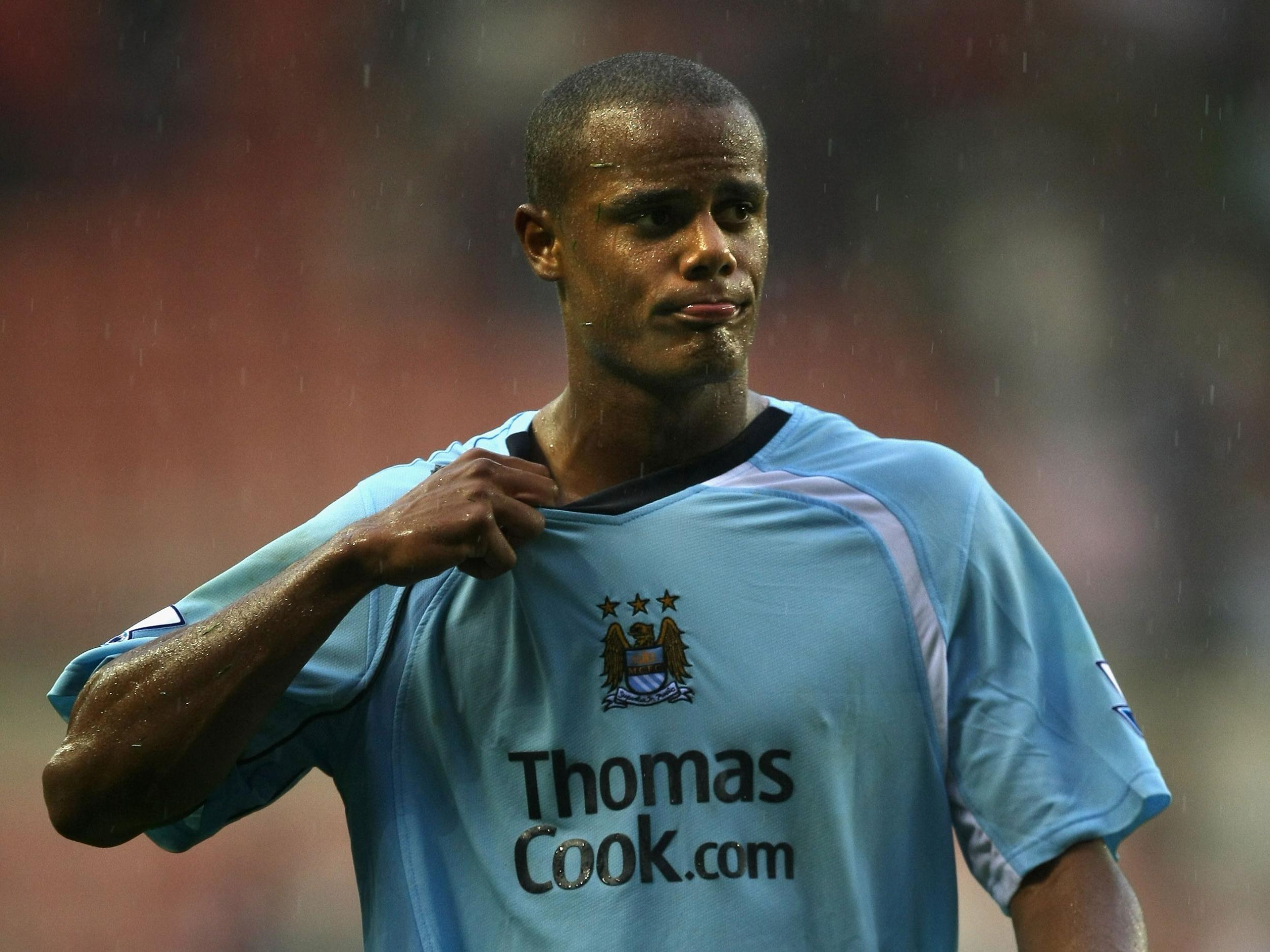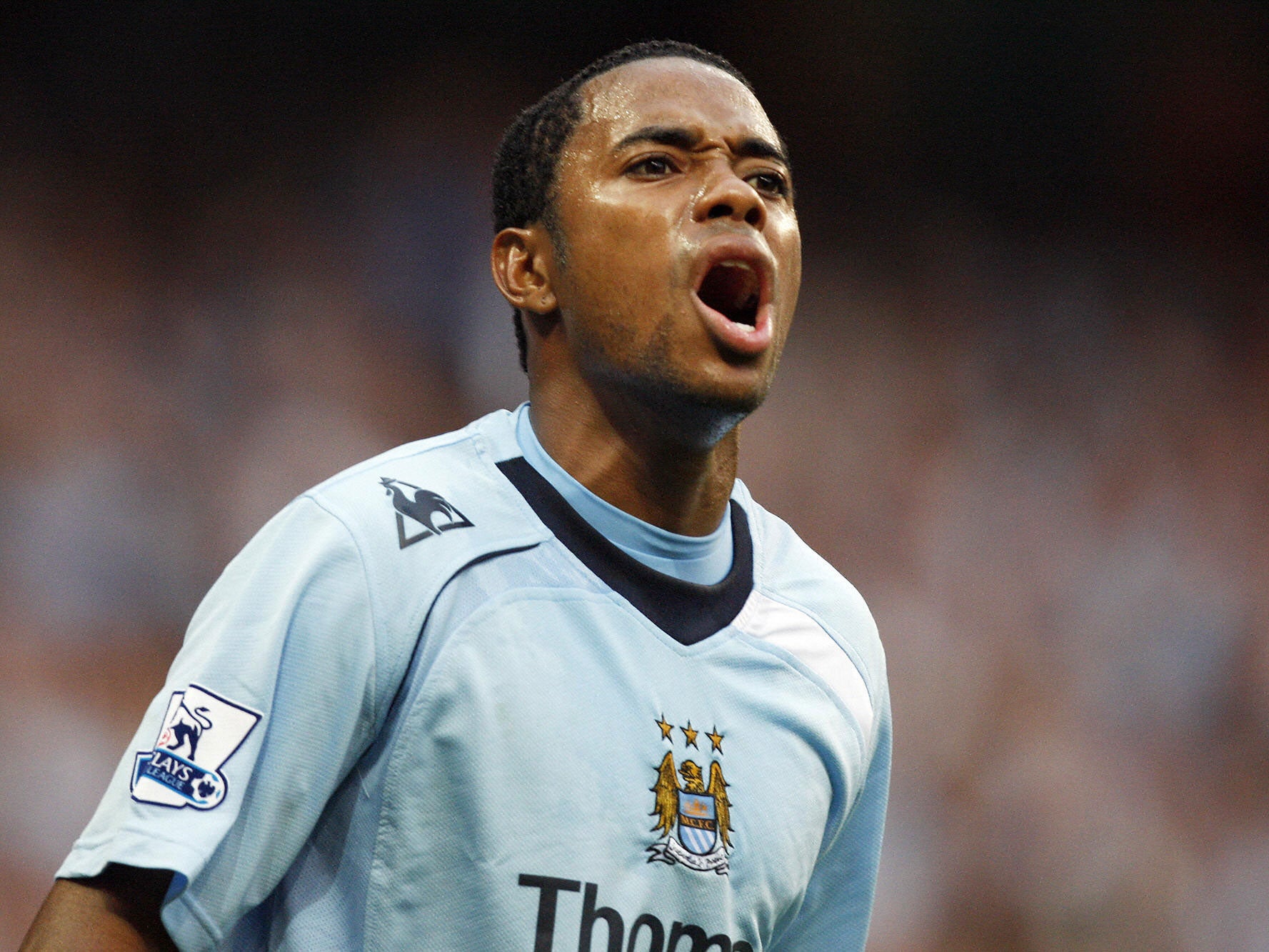Vincent Kompany on trophies, toilet doors and how Manchester City has changed in 10 years since takeover
Interview: Kompany is the only member of City's current playing squad who pre-dates the Abu Dhabi United Group's 2008 takeover

This weekend marks the 10th anniversary of the Abu Dhabi United Group’s takeover of Manchester City – a change of hands that radically altered the landscape of English football, the fortunes of its most tragicomic club and the life of its present-day captain, three-time Premier League winner Vincent Kompany.
Though many of the faces behind the scenes at City remain the same a decade on, Kompany is the only member of the playing staff who can remember a time before the billions. Even then, at the time of the takeover, he had only been a City player for a week-and-a-half. Had he joined from Hamburg with a whisper in his ear? Did he know?
“There was no information,” he insists. “When you’ve just signed for a club it was the furthest thing from my mind.” City was then owned by Thaksin Shinawatra, the deposed Prime Minister of Thailand, whose assets were frozen in his native country. Talk of a takeover had been flatly denied by the club. Kompany was as surprised as any other City employee when the speculation proved to be true.
More surprising still was the sheer pace of change. “We went away for international games around that time and from one day to the other they changed everything,” he recalls. “It was like those shows where they’re building stuff and next thing there’s a reveal. We came back and the standard was set.
“Our training ground was always decent but they went from a functional training ground to a no-excuse environment where we had everything from one day to the other. It took two weeks.”
In All or Nothing: Manchester City, the recent documentary series on the club’s dominant 2017-18 season, Kompany tells a group of children visiting the City campus how it was difficult to find a private moment at the old training ground in Carrington. When he arrived, there was no door on the toilet. “Yeah, like I said it was functional. It did the job.”

There were other sudden, minor but symbolic transformations too. “I remember having a discussion at some stage and saying a coffee machine would do well in the training ground,” he remembers. “Everyone was like: ‘No, in England we drink tea.’ I was like: ‘OK, I was just saying that I think coffee works as well.’
“Next thing you know, after the international break we had this massive coffee machine come in from Nespresso. I think it was being used that much it needed to go in for maintenance after two weeks. I said: ‘I told you coffee does well!’”
No amount of toilet doors or coffee machines could quite signal the scale of upheaval like a major, eleventh-hour, multi-million-pound signing. The arrival of Robinho, on the same day as the takeover was completed, was not so much a signing as a gazumping.
Chelsea, then English football’s ‘new money’ club since Roman Abramovich’s buyout in 2003, had expected to bring the Real Madrid forward to Stamford Bridge. Replica shirts with Robinho’s name were even available from the west London club’s website. Yet City, all of sudden, showed Chelsea’s new money to be old hat.
There could have been no greater statement of intent. “Extraterrestrial,” is how Kompany remembers a player who was among the world’s best upon his arrival, one who embarrassed his team-mates in dressing room games of keepy-uppy with rolled-up socks, but one who ultimately disappointed in Manchester.
The Brazilian’s signing served a greater purpose though, according to his former team-mate. “You start measuring yourself up against one of the best players in the world at the time and you think: ‘You know what, I can do it’. It was important to have a player like this within our team and it raised the profile of the club. Simple as that.”
Robinho’s departure in 2010 coincided with the arrivals of David Silva and Yaya Touré. Sergio Aguero would follow a year later. Together with Kompany, these three players would be present for every triumph of City’s post-Abu Dhabi era – three Premier League titles, three League Cups and an FA Cup.
Manchester United have a comparable record of winning silverware over the same period but their five-year wait for a Premier League title and City’s record-breaking dominance last term have led some to conclude the scales have now tipped. Some say Manchester’s power struggle, contested ever since 2008, has now swung City’s way.

“It’s a question that I always find uncomfortable to answer,” says a diplomatic Kompany. “I’ll have compassion for the neighbours because Sir Alex Ferguson was such a big personality. You cannot take somebody like this out of a club and think that from one moment to the other that everything is going to continue like before.
“You always need a transition period. Manchester United is still a big club, it’s still a club that competes for the Premier League and everything there, but it’s also still a club that’s dealing with a post-Ferguson era, it’s as simple as that, so they’ll always get that side of me, feeling compassionate.”
That a City captain can feel compassion rather than a sense of schadenfreude towards United shows how drastically the club’s fortunes have changed. It is as if a club closely associated with a history of misfortune – ‘Typical City’ – had won the lottery.
You might expect Kompany to say the same for himself, given how he unwittingly walked into a club on the brink of transformation a decade ago. “I beg to differ,” he says. “I was lucky, for sure I was lucky. But I’ve probably competed for my spot more than any other club in the world by being at City.”
As a player that pre-dates the Abu Dhabi-era, and one who has suffered his fair share of setbacks, Kompany has had to work constantly to keep pace with the rapid growth around him. “Nobody has been given a free ride where they’ve said: ‘You know what, we like you, you can just stay here for 10 years’. It didn’t happen that way.
“The funny thing is, I was just speaking to Rio Ferdinand. Rio went from West Ham to Leeds, who were then playing in the Champions League, to United. I was able to do all that within one club. In that sense I was lucky, but it wasn’t handed on a plate. Far from it.
“Sometimes it’s better when you come in for £50m. Take the example of Rio. You go from one club for £20-30m [£18m] then to the other one for £40-50m [£30m], they have an obligation to bring you on. I was just there. It’s slightly different.”
At 32-years-old, Kompany is still there, providing the final link on the pitch between City’s past and present.
Join our commenting forum
Join thought-provoking conversations, follow other Independent readers and see their replies
Comments